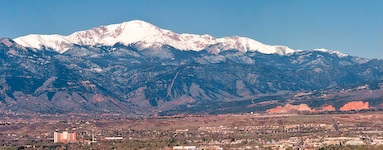Submitted by FCS7orgAdmin on
Correcting the “anti-” myths
By Ken Burrows
A favorite canard of those who oppose separation of church and state is that such separation is anti-religion. Christian nationalists—those who seek to fully merge church and state—go one step further. They say church-state separation is also anti-American. Because, they erroneously insist, our Founders created a specifically “Christian nation.”
Both of these “anti-s” are myths. If anything, keeping church and state separate has enabled an open marketplace of religious beliefs to flourish in America. Separation also ensures that government neither favors nor disfavors any particular faith and treats all citizens equally regardless of their individual religious beliefs or lack thereof. In short, it is separation that guarantees genuine religious freedom. In this it is pro-religion.
Advocacy for separating church and state dates to our founding days. Even religious leaders of the time offer evidence of this historical fact. Consider Baptist minister John Leland. In 1791 he published a broadside aimed at the last three states with established religions. In it he wrote: “The notion of a Christian commonwealth should be exploded forever,” and no one faith should “have a pre-eminence above the rest.” Leland was heavily involved in persuading James Madison to include specific language in the Constitution’s Bill of Rights denying the government any permission to establish religion or prevent citizens from practicing what their conscience dictates. In other words, build a wall of separation between church and state, as Thomas Jefferson would literally call for a decade later. Separation is thus pro-America.
Today, more than two centuries further along, another Baptist echoes Leland’s position. Amanda Tyler, executive director of the Baptist Joint Committee for Religious Liberty (BJC), says it should be our shared mission “to articulate the importance of a secular government in defending the right of all Americans to choose how they will practice religion or whether they choose not to be religious.” She emphasizes: “I come at this from a religious perspective, specifically as a Baptist Christian leading a national advocacy and education organization that for 86 years has worked to defend the separation of church and state.”
The BJC in 2019 launched Christians Against Christian Nationalism (CACN) to take a public stand against an ideology committed to destroying the church-state wall. As of last year, more than 24,000 individuals across the country from more than six-dozen denominations had signed a CACN statement that includes this in part: “Christian nationalism seeks to merge Christian and American identities, distorting both the Christian faith and America’s constitutional democracy. We reject this damaging political ideology.” Among the CACN’s formal stated principles is that “Government should not prefer one religion over another or religion over non-religion,” and conflating religious authority with political authority leads to “oppression…as well as the spiritual impoverishment of religion.”
Tyler says, “We Baptists come from a long line of religious dissenters who stood against established religion to defend the religious freedom of our neighbors—not just Baptists or Christians but people who practice other faiths and the non-religious.” (She does note that today the Supreme Court cannot be relied on to protect true religious liberty for all Americans. “It’s game-on in that struggle,” she says.)
This much is clear: Keeping the church separate from the government is neither anti-American nor anti-religion. To borrow minister Leland’s words, those two myths “should be exploded forever.”
Published in the Freethinkers of Colorado Springs Freethought Views column in the October 5-11 issue of the Colorado Springs Independent with the quotation below.
There is no government so bad as the government of an ecclesiastical class.
--- Rev. Henry Ward Beecher
